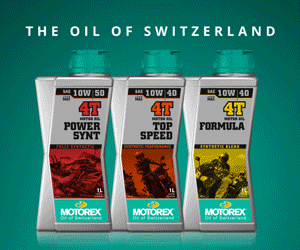Dakar Mission 1000
Serious pain for the some of the pioneers taking on Dakar Mission 1000 overnight with Venezuelan rider Francisco Jose Gomez Pallas pitched into the rocky gravel after his motorcycle snapped clean in half while he was travelling at speed!
While born in Venezuela, Pallas lives and works in Spain and with seven starts and four finishes already under his belt before this year’s edition, the 53-year-old is a veteran of Dakar.
2024 was his first year back after a four year hiatus from the event, but this calamity caught on video unfortunately means that he will not be able to add to his tally of finishes. We believe Francisco only sustained a broken rib in the terrifying accident.
View this post on Instagram
Pallas talking about the project before the event
“After seven Dakars on a motorcycle, it seemed to me that I had to do something different and special. And since my last Dakar in 2018, I have been working on a novel project for several years, that of racing the Dakar on an electric motorcycle.
“My friend Joan Puig created a 100 per cent handmade electric prototype, designed based on the geometries of leading motorcycles from the Dakar, including a battery weighing about 90 kilos.
“The bike has a power delivery that I have never seen in my life. Is incredible. This project makes me very excited because it opens a new future and in favour of the planet.
“Our project is about three years away. Our desire is: first, to reach the goal in this first year in the Mission 1,000 category. And second, in the future, we will set ourselves the goal of completing the same route as the motorcycle category to demonstrate that an electric motorcycle can finish the Dakar with the same long and hard stages.
“We want to talk to the organisation to see how we can include our motorcycle in the stages of the motorcycle category.”
Mission 1000 Dakar
The Mission 1000 class is an evolution within the Dakar categories which sees competitors on battery-powered , hybrid or hydrogen-powered motorcycles complete separate 100-kilometre stages from the stages that make up the mainstream rally.
The ten vehicles embarking on this historic first made their first appearance at the start of the prologue in AlUla. While the challenge is not intended as a competition, several assessment criteria have been defined to put the vehicles through their paces and keep the riders and drivers on their toes.
Entrants need to complete the entire route to score a grand total of 100 points in the challenge and will lose points for each unfinished stage. Example: 48 km/96 km in stage 3 will only yield 50% of the points at stake.
2030 is the target date for the wholesale use of alternative energies in the Dakar.























